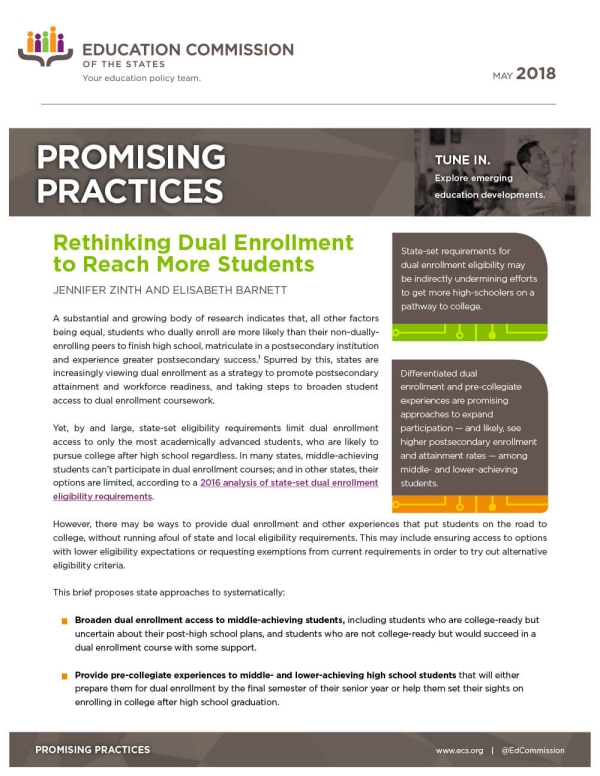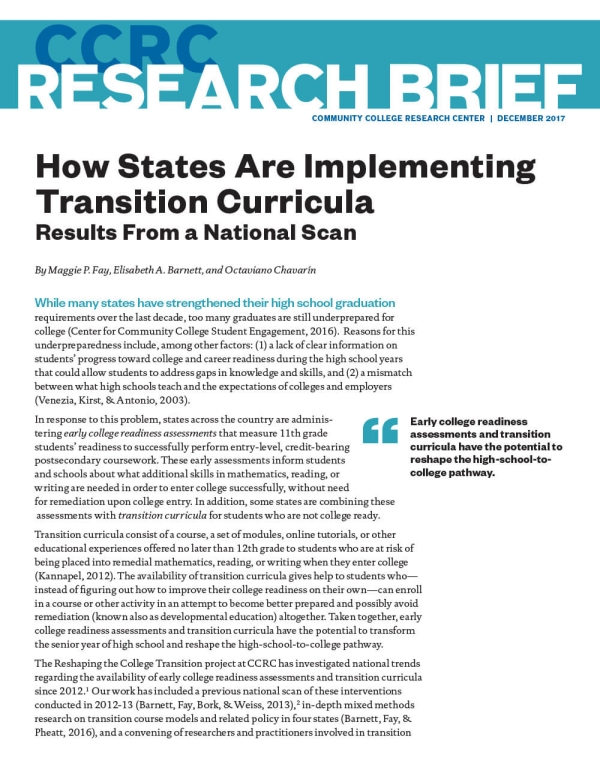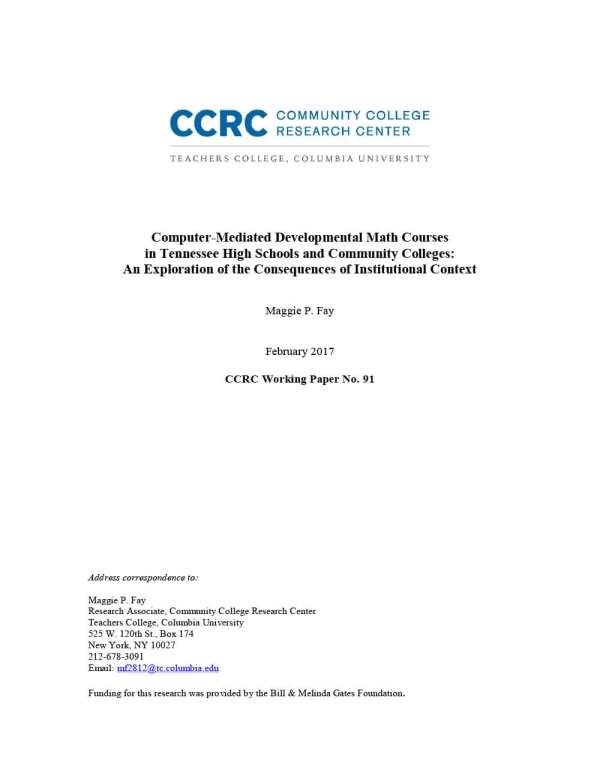Rethinking Dual Enrollment to Reach More Students

This brief published by Education Commission of the States discusses state approaches that systematically broaden dual enrollment access and provide pre-collegiate experiences to middle- and lower-achieving students.
How States Are Implementing Transition Curricula: Results From a National Scan

This brief describes the availability of transition courses across the country and offers insights into curricular design and goals, subject-area focus, how students are selected to participate, and whether completion of transition curricula guarantees placement into college-level courses.
Can High School Transition Courses Help Students Avoid College Remediation? Estimating the Impact of a Transition Program in a Large Urban District

This paper examines the impact of one transition course model, the At Home in College program, offered to selected high school students in New York City by the City University of New York (CUNY).
What Happens to Students Who Take Community College “Dual Enrollment” Courses in High School?

This report uses student enrollment and degree records from the National Student Clearinghouse to examine who enrolls in community college dual enrollment courses and what happens to them after high school.
Computer-Mediated Developmental Math Courses in Tennessee High Schools and Community Colleges: An Exploration of the Consequences of Institutional Context

Using site visit data from three community colleges and four high schools, this paper explores how the institutional context of the high schools compared with that of the colleges in ways that may have affected the implementation and efficacy of computer-mediated mathematics.
